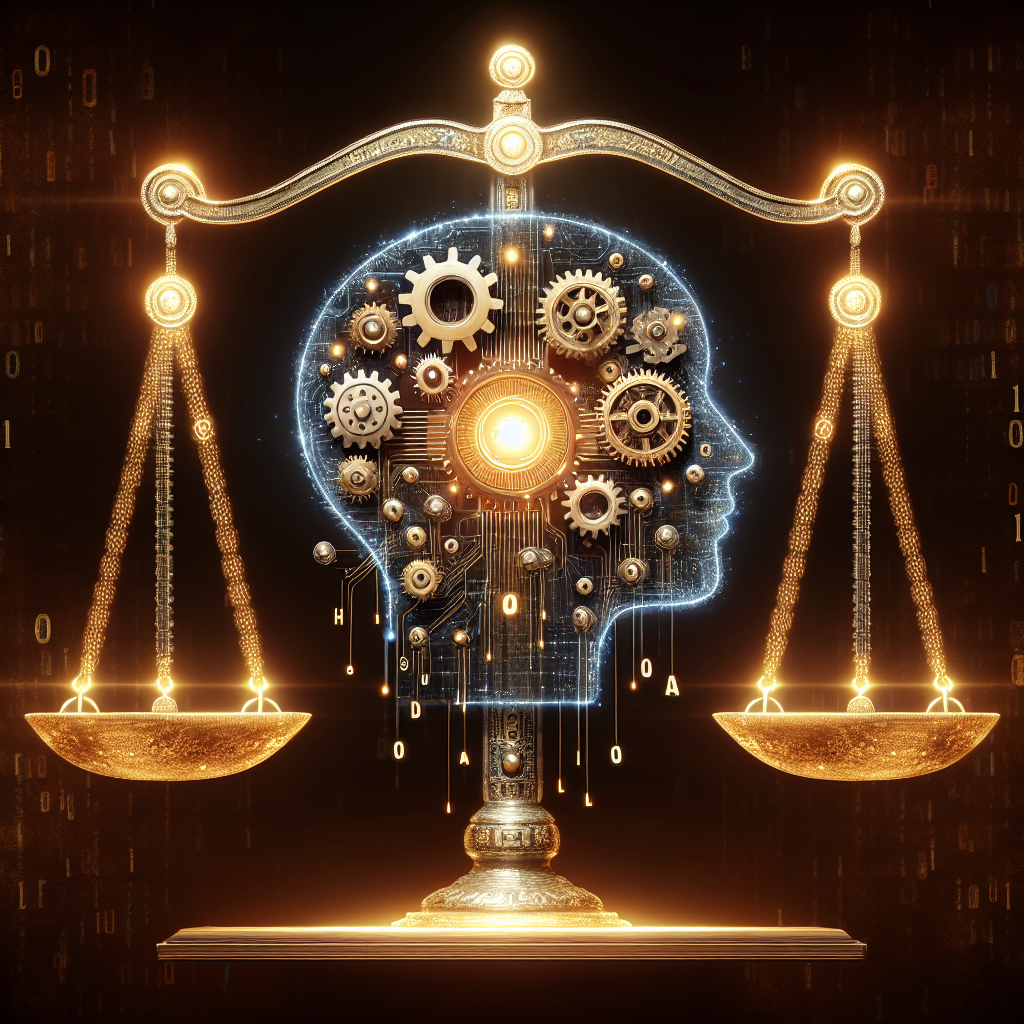Introduction
Artificial intelligence (AI) has revolutionized many industries, including the criminal justice system. From predictive policing to risk assessment tools, AI has the potential to improve efficiency and accuracy in decision-making processes. However, the use of AI in the criminal justice system raises ethical concerns regarding bias, fairness, and transparency. In this article, we will explore the concept of Ethical AI in the criminal justice system, its benefits, challenges, and potential solutions.
Benefits of AI in the Criminal Justice System
There are several benefits of using AI in the criminal justice system. One of the main advantages is the ability to analyze large amounts of data quickly and accurately. This can help law enforcement agencies identify patterns and trends that may not be readily apparent to human analysts. AI can also assist in predicting crime hotspots and allocating resources more effectively.
Another benefit of AI in the criminal justice system is the potential to improve decision-making processes. For example, risk assessment tools can help judges and parole boards make more informed decisions about bail, sentencing, and parole. These tools can also help reduce bias and subjectivity in decision-making by providing objective data-driven recommendations.
Furthermore, AI can help improve the efficiency of the criminal justice system by automating routine tasks such as case management, document analysis, and evidence processing. This can free up human resources to focus on more complex and strategic tasks, ultimately leading to a more effective and responsive criminal justice system.
Challenges of Ethical AI in the Criminal Justice System
Despite the benefits of AI in the criminal justice system, there are several challenges that need to be addressed to ensure its ethical use. One of the main challenges is the potential for bias in AI algorithms. AI systems are only as good as the data they are trained on, and if the data is biased or incomplete, the AI system will produce biased results. This can lead to discriminatory outcomes, particularly for marginalized communities who are already overrepresented in the criminal justice system.
Another challenge is the lack of transparency and accountability in AI systems. Many AI algorithms are black boxes, meaning that it is difficult to understand how they arrive at their decisions. This lack of transparency can make it challenging to identify and correct errors or biases in the system, leading to potentially unjust outcomes.
Furthermore, there are concerns about the impact of AI on privacy and civil liberties in the criminal justice system. For example, the use of facial recognition technology by law enforcement agencies raises concerns about mass surveillance and the potential for abuse of power. There are also concerns about the use of AI in predictive policing, which may disproportionately target communities of color and perpetuate existing biases in the criminal justice system.
Solutions for Ethical AI in the Criminal Justice System
To address these challenges, there are several potential solutions for ensuring the ethical use of AI in the criminal justice system. One approach is to improve the diversity and quality of the data used to train AI algorithms. By ensuring that the data is representative of the entire population and free from biases, it is possible to reduce the risk of discriminatory outcomes.
Another solution is to increase transparency and accountability in AI systems. This can be achieved by requiring AI developers to disclose how their algorithms work and provide mechanisms for auditing and challenging decisions made by AI systems. By increasing transparency, it is possible to identify and correct errors or biases in the system, ultimately leading to more fair and just outcomes.
Furthermore, there is a need for greater oversight and regulation of AI in the criminal justice system. This can be achieved through the development of ethical guidelines and standards for the use of AI, as well as the establishment of independent oversight bodies to monitor and evaluate the use of AI in law enforcement. By implementing robust oversight and regulation, it is possible to ensure that AI is used ethically and responsibly in the criminal justice system.
FAQs
Q: What is Ethical AI in the criminal justice system?
A: Ethical AI in the criminal justice system refers to the use of artificial intelligence technologies in a way that is fair, transparent, and free from bias. It involves ensuring that AI systems are used responsibly and in a manner that upholds the principles of justice and equity.
Q: How can AI be biased in the criminal justice system?
A: AI can be biased in the criminal justice system if the data used to train the AI algorithms is biased or incomplete. This can lead to discriminatory outcomes, particularly for marginalized communities who are already overrepresented in the criminal justice system.
Q: What are the benefits of using AI in the criminal justice system?
A: The benefits of using AI in the criminal justice system include the ability to analyze large amounts of data quickly and accurately, improve decision-making processes, and increase the efficiency of the criminal justice system. AI can also help reduce bias and subjectivity in decision-making by providing objective data-driven recommendations.
Q: How can the ethical use of AI in the criminal justice system be ensured?
A: The ethical use of AI in the criminal justice system can be ensured by improving the diversity and quality of the data used to train AI algorithms, increasing transparency and accountability in AI systems, and implementing oversight and regulation of AI in the criminal justice system. By addressing these challenges, it is possible to ensure that AI is used ethically and responsibly in the criminal justice system.

